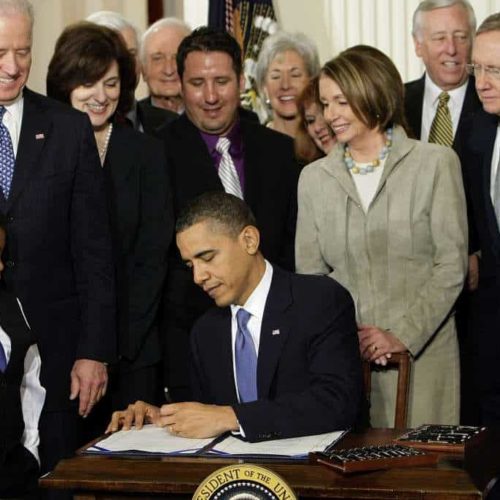Introduction
Wouldn’t it be great if our candidates had to take a dose of truth serum every morning before hitting the campaign trail? If they did, those of us who will be voting tomorrow wouldn’t be nearly as confused about what Obamacare is and what it isn’t, what it will do and what it won’t.
Since there is no such truth serum requirement, I believe that many of us will actually be voting against our own best interests. Many Americans will vote for candidates who have scared them into believing that Obamacare is a government takeover of health care that it will bankrupt the country while slashing Medicare benefits.
In the event that you or someone you know might benefit from some truth-telling, here, then, are a few things you ought to know before pulling that lever tomorrow:
· The Affordable Care Act is not a government takeover that has put us on a slippery slope toward socialism, or even toward a single-payer system like the one in the People’s Republic of Canada. In fact, the law actually shores up our uniquely American, market-based, multi-payer system now dominated by for-profit insurance corporations. That is not my favorite part of the law. But if you think insurance companies contribute value to our system, you should know that Obamacare gives them a new lease on life. Their business practices—which for years have included refusing to sell coverage to people with pre-existing conditions and pricing many other folks out of the system—have actually resulted in an ever-shrinking market. As a consequence, the insurers’ business models are not sustainable. Without a requirement that we all buy coverage from them, insurance companies will be able to grow only by taking market share away from each other and by persuading senior citizens to enroll in their profitable Medicare Advantage plans.
· The legislation is not going to add trillions to the deficit, even though it will expand Medicaid and provide subsidies to low-income individuals and families to buy private coverage. In fact, the opposite is true, according to the nonpartisan Congressional Budget Office. In 2010, the CBO estimated that Obamacare would actually reduce the deficit by $214 billion over 10 years, in part by reducing overpayments to private insurers that operate Medicare Advantage plans. After Republicans who had campaigned against the law regained control of the House after the 2010 elections, they passed legislation to repeal Obamacare in its entirety—despite the fact that the CBO warned that their bill was the one that would increase the deficit—by $240 billion over 10 years. The bill went nowhere in the Senate.
· The Affordable Care Act will not cut Medicare benefits. On the contrary, because of Obamacare, Medicare is now providing coverage for preventive care, like cancer screenings, for the first time. And the law is also improving the Medicare drug benefit by gradually reducing the amount of money seniors have to pay for medications out of their own pockets. As noted above, the law does reduce payments to insurers and to some health care providers—by an estimated $716 billion over the coming decade—but that money represents savings, not benefit cuts. One of the reasons the hospital industry endorsed Obamacare is that by bringing more people into coverage, hospitals will not have to provide nearly as much uncompensated care, which hits their bottom lines very hard. So hospitals were quite willing to go along with a reduction in future payments from the government because they know they will more than make up for it by having far fewer uninsured patients.
Here are some things the law will do:
· It will prohibit insurance companies from refusing to sell coverage to people simply because they have one or more pre-existing conditions.
· It will also prohibit them from cancelling our coverage when we get sick just to avoid paying for our care.
· It will prohibit insurers from charging women more than men for comparable coverage and will not allow them to charge older folks more than three times as much as younger folks.
· It will require them to spend at least 80 percent of what we pay in premiums actually paying claims and improving care.
· It will allow young adults—who comprise the largest segment of the uninsured—to stay on their parents’ policies until age 26.
· It will reduce the number of uninsured Americans by at least 30 million if all the states agree to accept federal dollars to expand their Medicaid programs.
That said, Obamacare is not a panacea for all that ails the U.S. health care system. I view it as the end of the beginning of reform. We will have to do more as a nation to bring everyone into coverage, to control costs and to improve the way we deliver care. But Obamacare does not resemble the law that many politicians have spent millions of dollars trying to persuade us it is. Don’t be fooled into voting against your own best interests tomorrow.
Read more in Health
Health
Blistering inspector general report says feds are failing to fight Medicaid home care fraud
IG has repeatedly warned Centers for Medicare and Medicaid Services about personal services program for home care
Wendell Potter commentary
OPINION: translating insurance-speak
What the industry says about Obamacare isn’t really what it means


Join the conversation
Show Comments